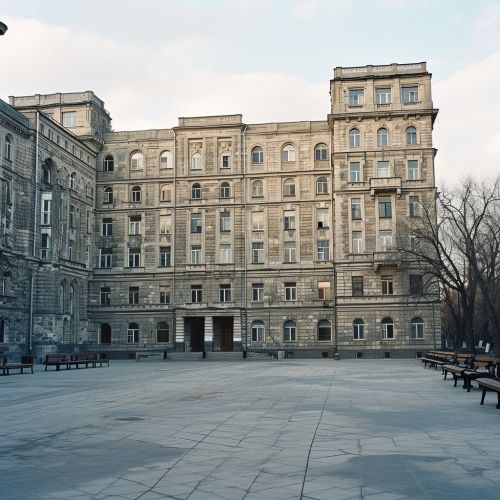Secretariat of the Communist Party of the Soviet Union
Overview
The Secretariat was a key organ within the Communist Party of the Soviet Union. It was responsible for the administrative affairs of the party and played a significant role in the decision-making process of the party and the Soviet state. The Secretariat was established in 1919 and existed until the dissolution of the Soviet Union in 1991.


Structure and Function
The Secretariat was composed of several key positions, including the General Secretary, who was the de facto leader of the party and the Soviet Union. Other positions included the Secretaries, who were responsible for various sectors of the party's work, such as ideology, organization, and propaganda. The Secretariat was responsible for implementing the decisions of the Central Committee and the Politburo, the two highest bodies in the party hierarchy.
The Secretariat was also responsible for the day-to-day administration of the party, including the organization of party meetings, the preparation of reports and resolutions, and the maintenance of party records. It also played a crucial role in the selection and promotion of party members, which gave it significant influence over the party's personnel and policy decisions.
History
The Secretariat was established in 1919, during the early years of the Soviet state. Its creation was part of a broader effort to centralize the party's administration and decision-making process. Over the years, the Secretariat's role and influence grew, particularly under the leadership of Stalin, who used his position as General Secretary to consolidate his power and control over the party and the state.
The Secretariat continued to play a crucial role in the governance of the Soviet Union throughout its existence. However, its power and influence varied depending on the leadership and the political climate of the time. For example, during the period of Khrushchev's leadership, the Secretariat's power was somewhat diminished, as Khrushchev sought to decentralize power and reduce the influence of the party bureaucracy.
The Secretariat was abolished in 1991, along with the rest of the Communist Party, following the dissolution of the Soviet Union.
Influence and Legacy
The Secretariat's influence extended beyond the administrative affairs of the party. Through its control over personnel decisions, it was able to shape the direction of the party and the state. The Secretariat also played a key role in the implementation of party policy, which had a significant impact on the social, economic, and political life of the Soviet Union.
The legacy of the Secretariat is complex. On one hand, it was a crucial part of the Soviet political system and played a key role in the governance of the country. On the other hand, its centralized control and lack of transparency have been criticized for contributing to the authoritarian nature of the Soviet regime.
